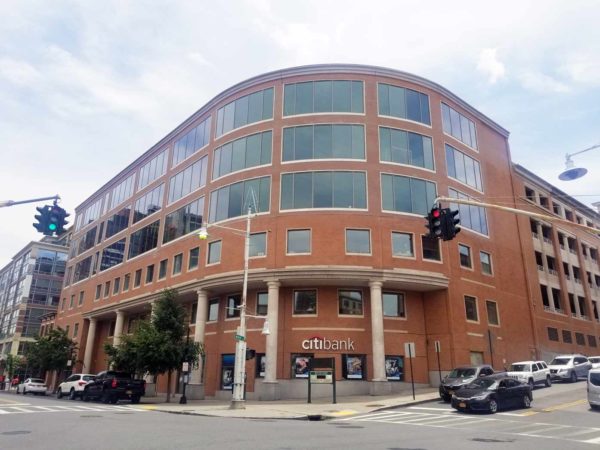Real estate services firm CBRE reports that first quarter office leasing activity in Westchester totaled 110,000 square feet, which was a 17% decrease from the first quarter of 2021, 72% below the fourth quarter of 2021 and 47% below the five-year quarterly average. The average asking rent in Westchester during the first quarter of this year was $29.58 per square foot, virtually unchanged from both the fourth quarter of 2021 and the first quarter of last year.
CBRE characterized the Westchester office rental market as having adapted “to changing conditions on its road to recovery.”
The top leases for the first quarter of 2022 included 58,459 square feet leased by the Board of Cooperative Education at 480 Mamaroneck Ave. in Harrison and 17,038 square feet leased by MeritDirect at 2 International Drive in Rye Brook. Both of those leases were renewals. The next three largest leases were new leases, with RSBH Holdings taking 12,273 square feet at 86 Main St. in Yonkers, Search for Change Inc. signing up for 7,700 square feet at 400 Columbus Ave. in Valhalla and Oberman Companies taking 6,078 square feet at 800 Westchester Ave. in Rye Brook.

CBRE said that leasing activity in Westchester was led by the financial sector, which accounted for 43% of the space taken during the first quarter of 2022.


CBRE”™s report on Westchester office leasing follows its report on the resurgence of interest in flexible office space. The report “Awakening an Era of Flexibility” says that the flexible office market in North America showed signs of recovery in 2021 despite the lingering effects of the pandemic.
“Flex providers reported a rebound in sales and occupancy, particularly from small and medium-size businesses,” CBRE said. Flexible office space solutions clearly will be a key part of companies”™ real estate strategies as they adopt hybrid work arrangements and as new space use patterns emerge.”
CBRE found that flexible office space owned and managed by landlords is growing in popularity. Flex space can be quickly configured to fill whatever needs a user has and also can be expanded or reduced as user needs change.
“Landlords that offer flex space say it has allowed them to maintain direct relationships with tenants, retain those looking to downsize, help tenants grow strategically and efficiently within the building or portfolio and even win new relationships from competitors,” CBFE reported, “They view it as a building amenity that enhances the tenant experience and can increase revenue as does a conference center, coffee shop or fitness center.”
CBRE reported that flexible space offerings range from turnkey pre-built suites to coworking space and many variations in between.
“Landlords are also focused on providing shared amenities, such as conference facilities and hospitality spaces. The right model of flexibility, services and amenities in each building is very dependent on the market, asset, ownership group and tenants,” CBRE said.
It said that during the pandemic, the flexible office industry has grown more sophisticated.
“Its appeal to occupiers remains rooted in short-term contractual commitments, cost efficiency and the ability to quickly shrink or expand space,” CBRE reported. “This is an unprecedented time for occupiers, building owners and flex providers to come together and identify what this era of flexibility will mean for their respective future real estate portfolio strategies.”


















